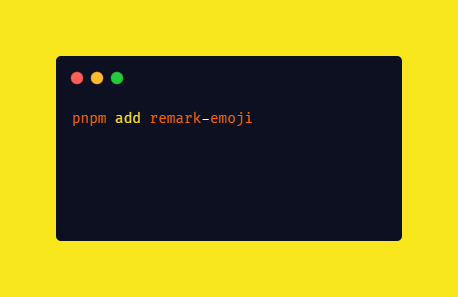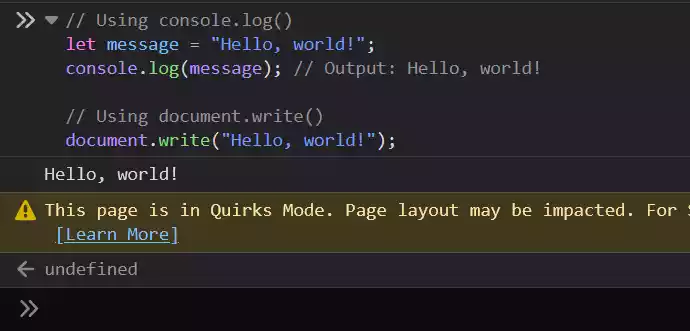C vs C++ vs C#: What's the Difference?
Programming languages are the building blocks of the digital world, and among the most prominent trio of languages is C, C++, and C#.
These three languages, while sharing some similarities, serve distinct purposes in the world of software development.
In this article, we’ll look into the history, features, code syntax, applications, and provide a comparative table to help you understand the differences and make an informed choice for your programming journey.
Table of Contents
History
C
C, the eldest of this trio, came into existence in the early 1970s, thanks to the efforts of Dennis Ritchie at Bell Labs.
It evolved from the B language, boasting substantial improvements like data types, control structures, and functions.
Over the decades, C solidified its position as the go-to language for systems programming, remaining relevant even today.
C++
In the 1980s, Bjarne Stroustrup, also at Bell Labs, gave birth to C++.
Building upon the foundation of C, he introduced support for object-oriented programming (OOP).
This innovative leap led C++ to become the dominant language for general-purpose programming, and it maintains its popularity across various domains.
C#
While C and C++ were making their marks, Microsoft was brewing its competitor.
C# (pronounced as “C sharp”) was conceived in the late 1990s by Anders Hejlsberg and his team.
Tailored for the .NET Framework, C# emerged in 2002, swiftly gaining traction as a modern, object-oriented language for Windows application development.
Features
C
C is a procedural language, emphasizing step-by-step programming.
Its lower-level nature grants programmers unparalleled control over hardware and operating systems.
Consequently, C is often chosen for tasks like developing operating systems and embedded systems where performance is critical.

C++
C++ is a versatile hybrid language that blends procedural and object-oriented programming paradigms.
OOP allows the creation of reusable code modules called objects.
Like C, C++ is also low-level, but its power and adaptability make it suitable for a wide spectrum of applications, including operating systems, desktop, web, and mobile applications.
C#
C#, in contrast, operates at a higher level, riding on the .NET Framework. Designed for ease of learning and usage, C# supports not only OOP but also generic programming and other modern features.
Its strong suit lies in crafting diverse software, spanning desktop applications, web services, and mobile apps.
Applications
C
C’s influence is pervasive in system programming, where it is used to build operating systems, device drivers, and embedded systems.
It excels in environments where low-level hardware interaction and performance optimization are paramount.
C++
C++ shines in applications requiring both high performance and complex software architectures.
It is the language of choice for game development, resource-intensive desktop applications, and software that demands fine-grained control over memory.
C#
C# thrives in the realm of Windows application development, making it ideal for crafting desktop applications, web services, and mobile apps targeting the .NET ecosystem.
Its ease of use and robust libraries also extend to game development with the Unity game engine.
Code Syntax
While C, C++, and C# share a common heritage, their code syntax exhibits notable distinctions.
C++
C++ boasts a broader vocabulary compared to C. It introduces keywords like class, public, private, protected, virtual, override, and final, which are absent in C.
C++ also diverges in input and output handling, replacing C’s scanf() and printf() functions with the std::cin >> and std::cout << operators for more streamlined interaction.
C#
C# stands out for its robust support of OOP. This means C# programs are structured around self-contained code and data units called objects, a feature not found in C.
Here’s a simple illustration in each language:
C:
#include <stdio.h>
int main() {
int a = 10;
int b = 20;
int sum = a + b;
printf("The sum of %d and %d is %d\n", a, b, sum);
return 0;
}
The sum of 10 and 20 is 30
C++:
#include <iostream>
int main() {
int a = 10;
int b = 20;
int sum = a + b;
std::cout << "The sum of " << a << " and " << b << " is " << sum << std::endl;
return 0;
}
The sum of 10 and 20 is 30
C#:
using System;
public class Program {
public static void Main(string[] args) {
int a = 10;
int b = 20;
int sum = a + b;
Console.WriteLine("The sum of {0} and {1} is {2}", a, b, sum);
}
}
The sum of 10 and 20 is 30
As evident, C, C++, and C# share strikingly similar code structures, but nuances in keywords and input/output handling set them apart.
Comparative Table
Let’s summarize the key differences among these languages:
| Aspect | C | C++ | C# |
|---|---|---|---|
| Paradigm | Procedural | Hybrid (Procedural & OOP) | Object-Oriented (OOP) |
| Application | Systems Programming | Games, Desktop Apps, Memory-intensive Software | Windows Apps, Web Services, Mobile Apps |
| Syntax | Lower-level, Basic I/O | Richer Vocabulary, Streamlined I/O | OOP Support, Self-contained Objects |
Here is a video for more reference:
💡
In the video, when it says C is functional, it is a mistake, rather C is a procedural language.
Wrap Up
As a wrap up, in the ever-evolving landscape of programming languages, C, C++, and C# stand tall, each with its unique strengths.
The choice of which one to learn depends on your programming objectives and preferences.
- If you aspire to tackle operating systems, embedded systems, or performance-critical software, C is your choice.
- For those venturing into complex software realms such as desktop applications, web development, or mobile apps, C++ offers versatility and power.
- If you’re new to programming or aim to develop software for the .NET Framework, C# provides a friendly starting point.
FAQs
- Which language is better, C++ or C#? The choice between C++ and C# depends on your project requirements.
C++ is more powerful and versatile, but has a steeper learning curve. C# is easier to learn and is well-suited for .NET development. - Can I switch between these languages once I’ve learned one? Yes, switching between these languages is possible.
Knowledge of one language often makes it easier to learn another, and many programming concepts are transferable. - Is C still relevant in modern software development? Yes, C remains relevant, especially in low-level system programming and embedded systems, where its control over hardware and performance optimization are crucial.
- Which language has better job prospects, C++ or C#? Job prospects vary by location and industry.
Both C++ and C# offer numerous career opportunities, so it’s essential to choose the language that aligns with your interests and goals. - What resources are available for learning these languages? There are numerous online tutorials, courses, and books available for learning C, C++, and C#.
It’s advisable to start with beginner-friendly resources and practice coding regularly.





